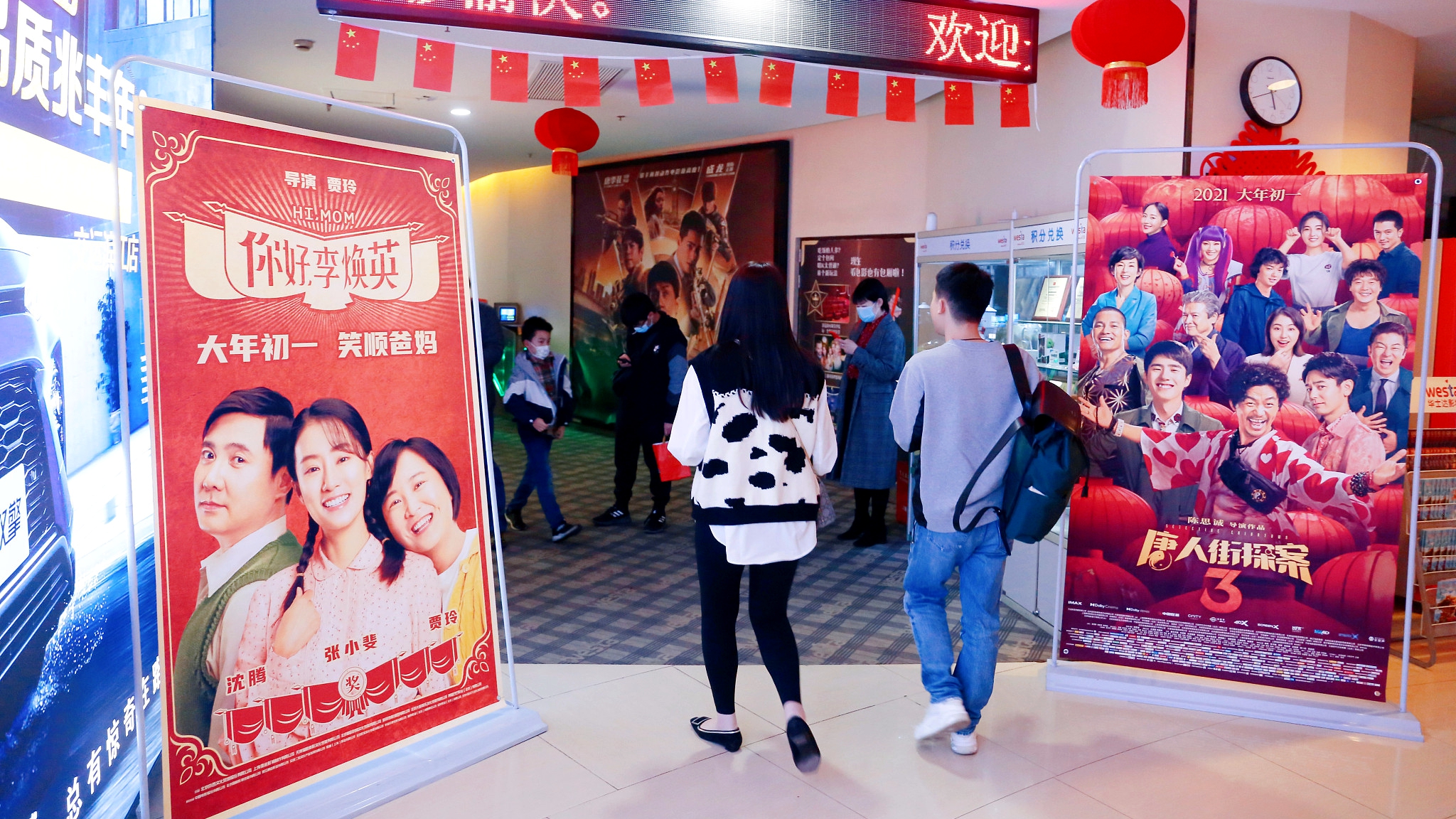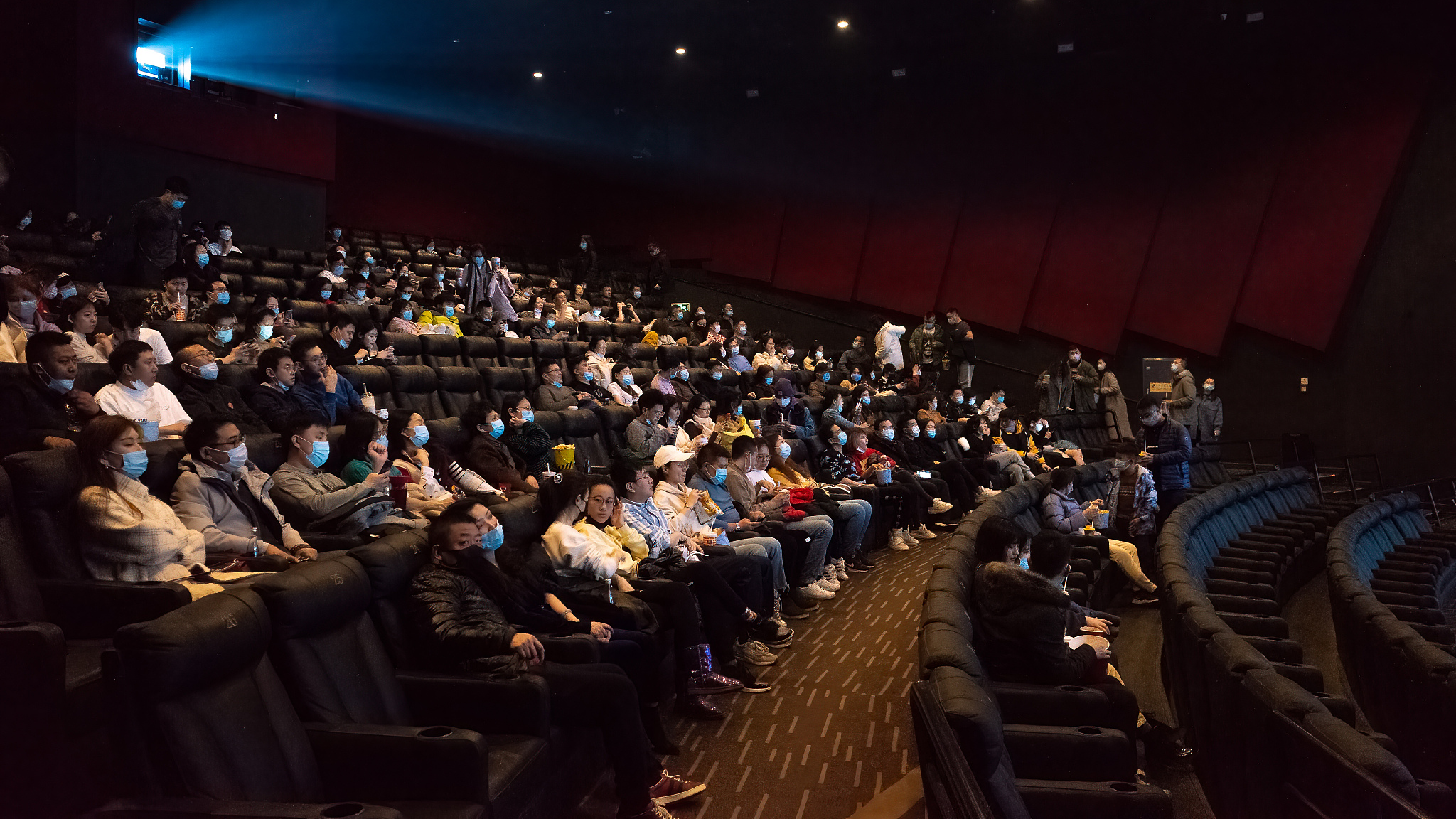
Moviegoers enter a cinema in Shanghai, China, February 21, 2021. /CFP
Moviegoers enter a cinema in Shanghai, China, February 21, 2021. /CFP
A Chinese political advisor has expressed concern about a potential theater chain monopoly in the country after a record-breaking performance by a number of movies backed by big studios.
Many theater chains are either owned by big Chinese film studios or actively involved in the film distribution and production, said Yan Huiying, a member of the National Committee of the Chinese People's Political Consultative Conference (CPPCC). This, she added, lets them prioritize screening movies that they've contributed to, leaving titles without solid backing by dominant film giants with reduced chances of succeeding.
The 2021 Spring Festival film season, one of the most lucrative periods of the year for China's entertainment business, broke previous records with a combined taking of $1.2 billion. Most of those earnings came from just two blockbusters: Chen Sicheng's "Detective Chinatown 3" from Wanda Pictures and Jia Ling's "Hi, Mom," with each grossing over $600 million.
Wanda Pictures, a subsidiary of Wanda Group, is a big name in the film production and distribution industry in China. It also happens to be one of the largest cinema operators in the country with over 600 theaters nationwide that drew in a record 200 million movie viewers in 2019.
The other five films released during the Spring Festival season made around $150 million or less each.
Read more: Graphics: Big rebound at Chinese New Year box office

Moviegoers are seen at a movie theater during the Chinese New Year holiday in Beijing, China, February 13, 2021. /CFP
Moviegoers are seen at a movie theater during the Chinese New Year holiday in Beijing, China, February 13, 2021. /CFP
Some filmmakers have even taken to social media to call on theater chains to arrange more showing time slots for their works, as well as ask audiences to watch their films – a move that sparked wide discussion online.
"The cinema chains use their dominant position to participate in film production and distribution, and the producers are willing to join forces with them, which will create suspicion of monopoly," Yan said.
During her proposal to this year's annual session of China's top political advisory body, the political advisor suggested that film production and distribution should be separated from movie theater chains, while relevant departments should formulate industry rules to avoid or limit the monopolistic development of movie theaters. By doing this, Yan hopes that a fair environment can be fostered in the film market.
In addition, she suggested forbidding movie theater chains to collude with distributors to make exclusive film showtime arrangements, and capping a film's market share in terms of screening time slots.
"We also have to crack down on corrupted behavior to use money to buy fake box office figures," Yan added.
To do so, she suggested that film distributors and cinema chains should conduct film scheduling negotiations before a film's release to prevent cinema chains from making their decisions alone.
(With input from China.org.cn)

